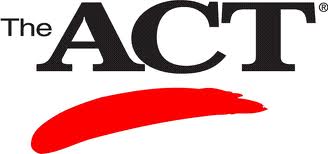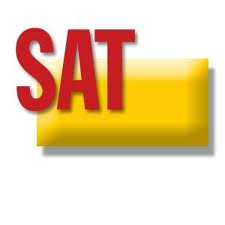Announcements!!!
AP EXAM ORDERS ARE DUE BY MARCH 2, 2018
EPHS AP AND DUAL CREDIT PHILOSOPHY
Advanced Placement (AP) and Dual Credit classes challenge students to think critically about subjects. Students enrolled in such classes are exposed to enriched course materials, in-depth classroom discussions as well as demanding college-level rigor of course work. As a campus, we believe that AP and DC classes are one of the best methods to promote and graduate college ready students.
We believe in encouraging students who may not otherwise realize their own potential or who may not choose an AP, PAP, or DC course on their own volition. We feel it is especially important to encourage economically disadvantaged and/or minority students to enroll in said classes as statistically, they are less likely to choose this academic route. Through AP and DC, we prepare students for a future that they may not have otherwise considered.
As a campus, we believe that Counselor/Teacher identification and the use of the AP Potential list are vital in the identification process. Students identified for an AP, PAP or DC course must meet the following three critieria:
1. Student has passed all EOC’s in the subject area
2. Student has not failed any previous PAP or AP courses in the subject area
3. Student possesses a desire to work hard
As a campus, we will provide support for identified students to help them maximize their potential.
Advanced Placement (AP) and Dual Credit classes challenge students to think critically about subjects. Students enrolled in such classes are exposed to enriched course materials, in-depth classroom discussions as well as demanding college-level rigor of course work. As a campus, we believe that AP and DC classes are one of the best methods to promote and graduate college ready students.
We believe in encouraging students who may not otherwise realize their own potential or who may not choose an AP, PAP, or DC course on their own volition. We feel it is especially important to encourage economically disadvantaged and/or minority students to enroll in said classes as statistically, they are less likely to choose this academic route. Through AP and DC, we prepare students for a future that they may not have otherwise considered.
As a campus, we believe that Counselor/Teacher identification and the use of the AP Potential list are vital in the identification process. Students identified for an AP, PAP or DC course must meet the following three critieria:
1. Student has passed all EOC’s in the subject area
2. Student has not failed any previous PAP or AP courses in the subject area
3. Student possesses a desire to work hard
As a campus, we will provide support for identified students to help them maximize their potential.
EPHS AP department expectations:
1. An AP contract signed by student and parent to include:
* Students take the AP exam
* Students attend 3 AP study sessions per course (after school or Saturdays)
* Students pay $5 (econ disadvantaged)/$35 for exam ONLY if they attend the study sessions. Attendance will be taken at study sessions. A student must pass the first semester of the AP class and be passing 2nd semester of the AP class in order for EPHS to subsidize the cost of the AP exam.
2. Challenging AP tests without taking the class require students to pay the full price of the exam.
3. If a student is a no show on AP test day, they will be required to pay an additional $15 test return fee, regardless if they are economically disadvantaged. A refund for the missed AP test will not be issued.
1. An AP contract signed by student and parent to include:
* Students take the AP exam
* Students attend 3 AP study sessions per course (after school or Saturdays)
* Students pay $5 (econ disadvantaged)/$35 for exam ONLY if they attend the study sessions. Attendance will be taken at study sessions. A student must pass the first semester of the AP class and be passing 2nd semester of the AP class in order for EPHS to subsidize the cost of the AP exam.
2. Challenging AP tests without taking the class require students to pay the full price of the exam.
3. If a student is a no show on AP test day, they will be required to pay an additional $15 test return fee, regardless if they are economically disadvantaged. A refund for the missed AP test will not be issued.
AP Department Class Drop Policy (Drop must be made within the first six weeks of each semester; otherwise drop cannot be made until semester break.)
Proposed steps necessary for drop:
1. Teacher/Student conference; develop plan for student success; Teacher calls parent to notify and follow up with an email.
2. Teacher/Student/Parent conference-review plan and modify as needed
3. Teacher/Student/Parent/Administrator/Counselor conference
Proposed steps necessary for drop:
1. Teacher/Student conference; develop plan for student success; Teacher calls parent to notify and follow up with an email.
2. Teacher/Student/Parent conference-review plan and modify as needed
3. Teacher/Student/Parent/Administrator/Counselor conference
What are AP Classes
Students who complete AP courses are:
- The Advance Placement (AP) Program brings college level courses and exams to high school students.
- 68% of all public schools in the country provide some AP courses
- EPHS offers AP (23) classes in English, Math, Science, Social Studies, Art, and World Languages.
- Criteria for course work is established by college professors
- Teachers are trained by the College Board to teach the AP level curriculum
- There is a strong correlation between AP performance and graduation rates and times.
- Students who have taken at least one advanced placement course are more likely to graduate from college on time, even those who do not receive passing scores on the exams. Those students who receive passing scores on AP exams increase their odds of graduating within four years, the College Board said.
- 61% of high school students who pass two AP exams will graduate from college in four years or less.
- 45% of high school students who pass one AP exam will graduate from college in four years or less.
- Of the high school students who do not take an AP class, only 29% graduate from college in 4 years or less.
Students who complete AP courses are:
- More likely to choose challenging majors
- More likely to exercise leadership
- More likely to graduate with a double major
- Better prepared academically
- Twice as likely to go into advanced study



